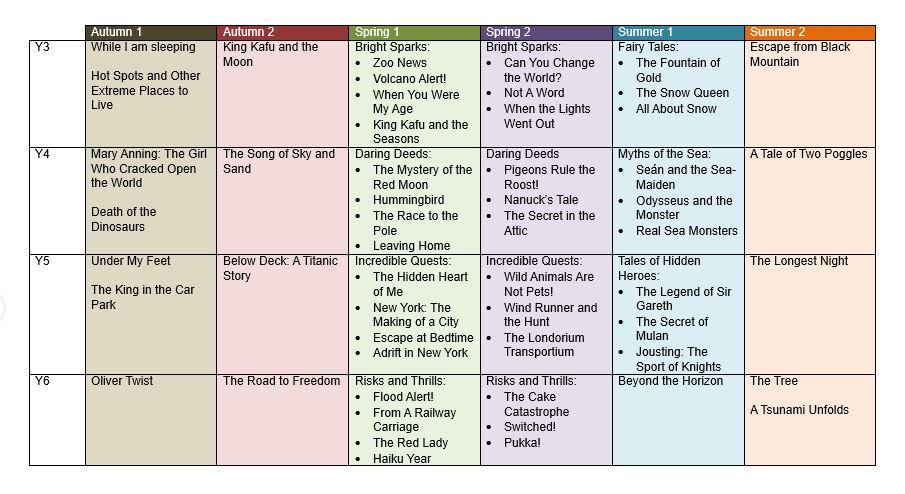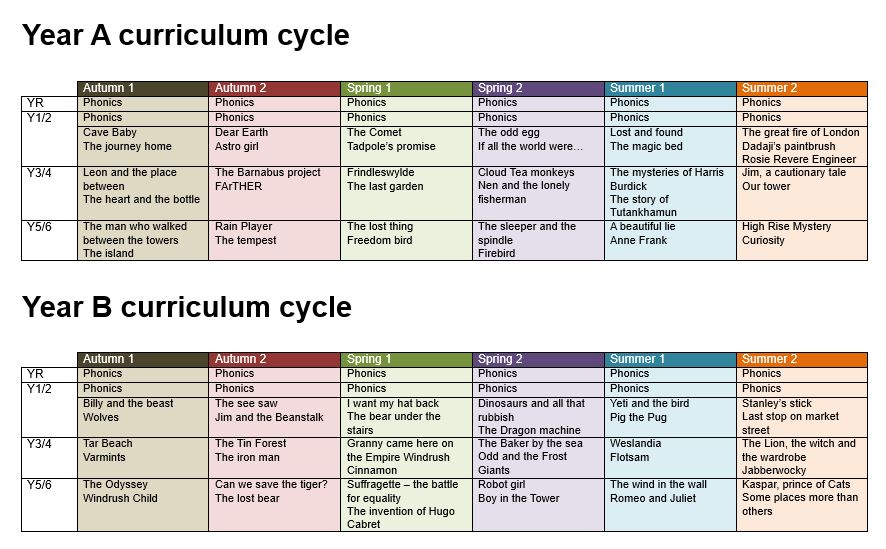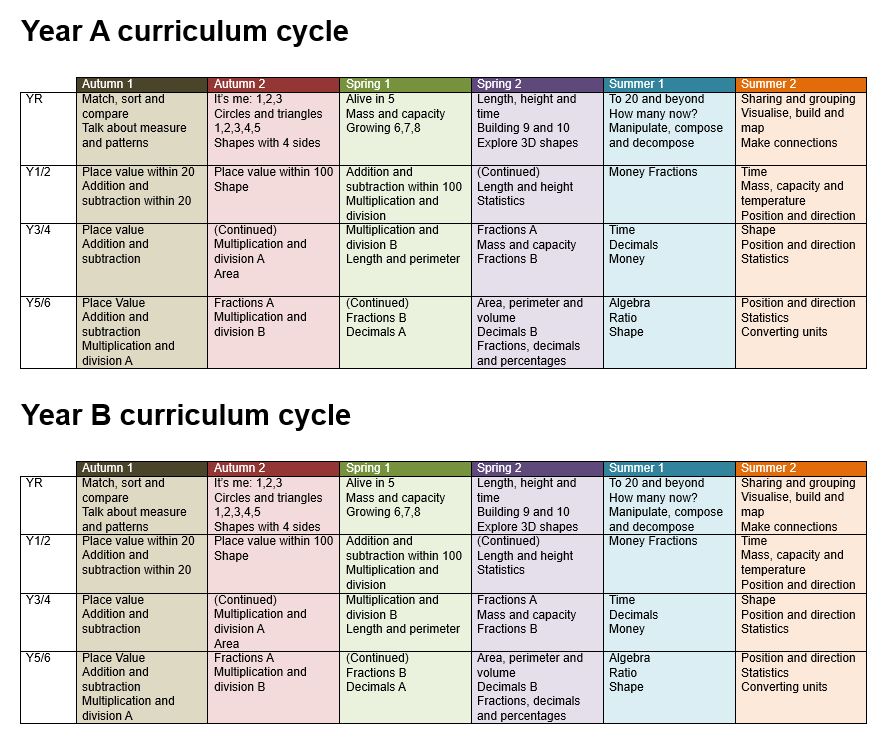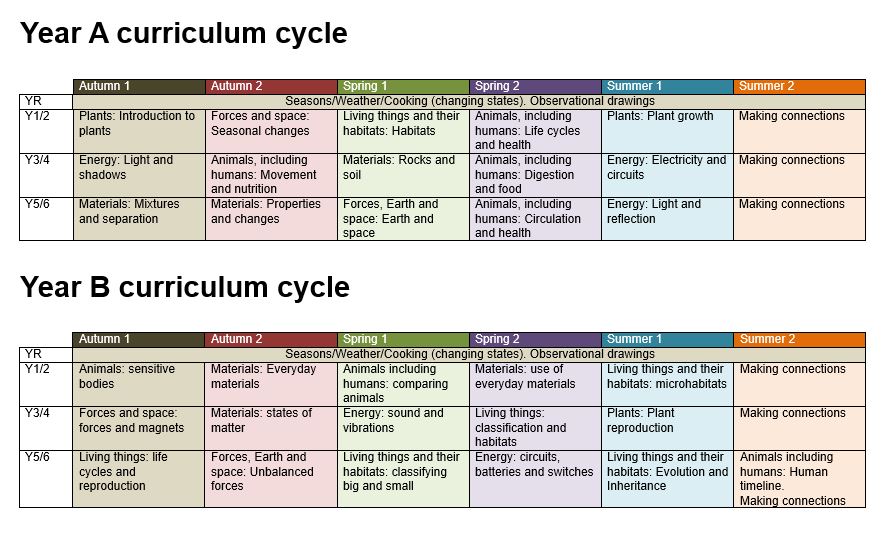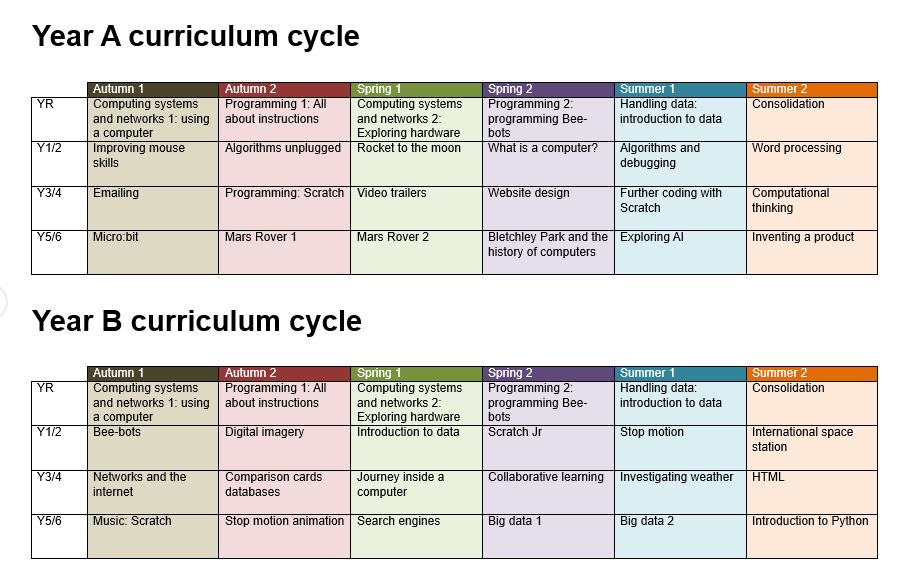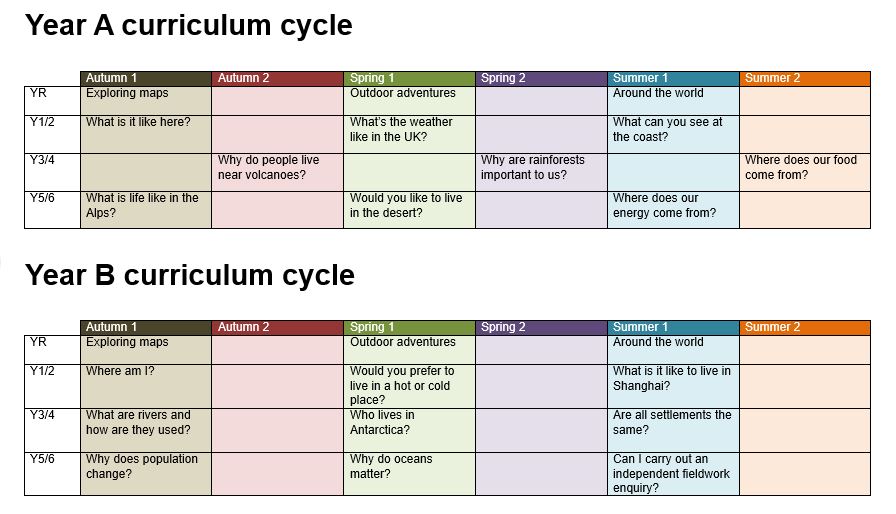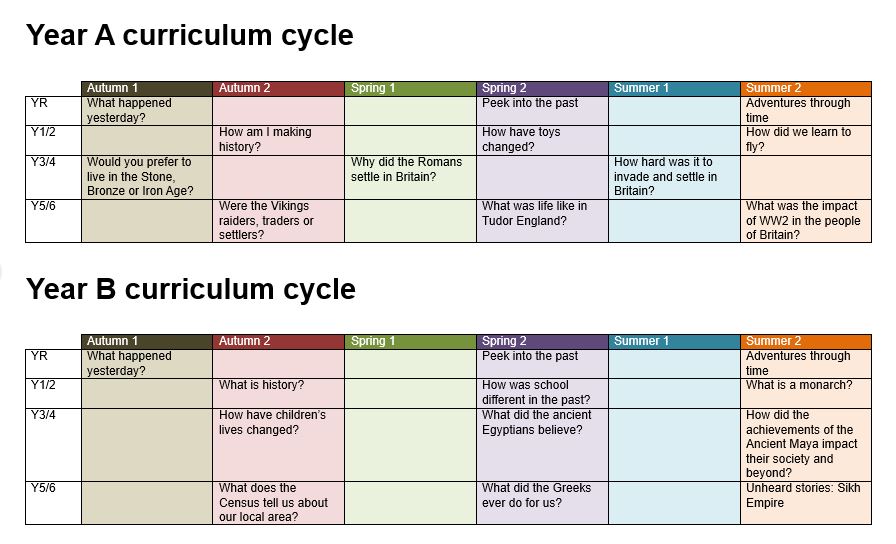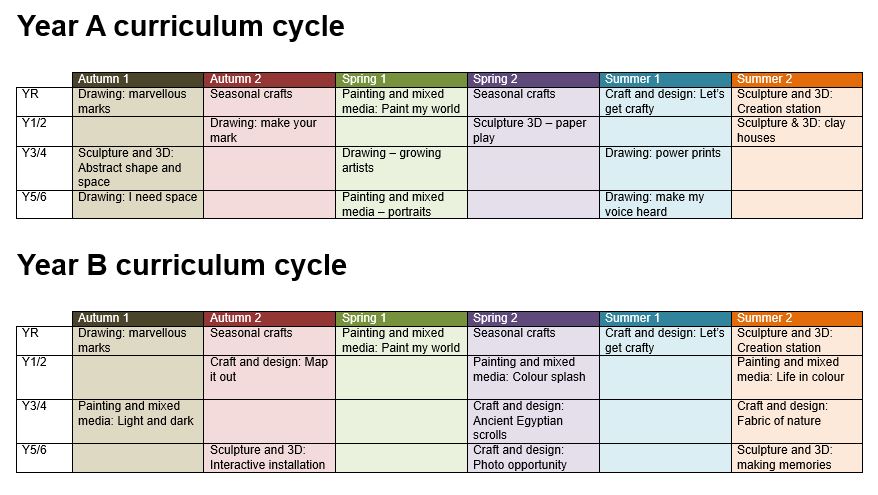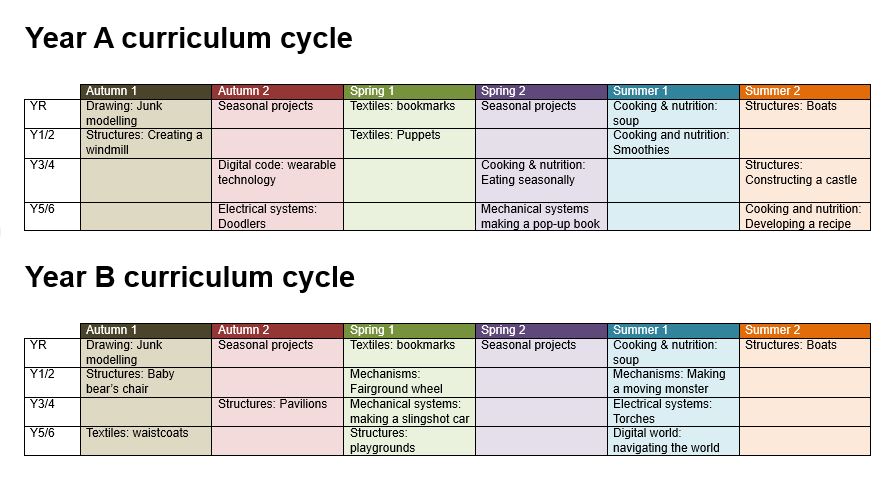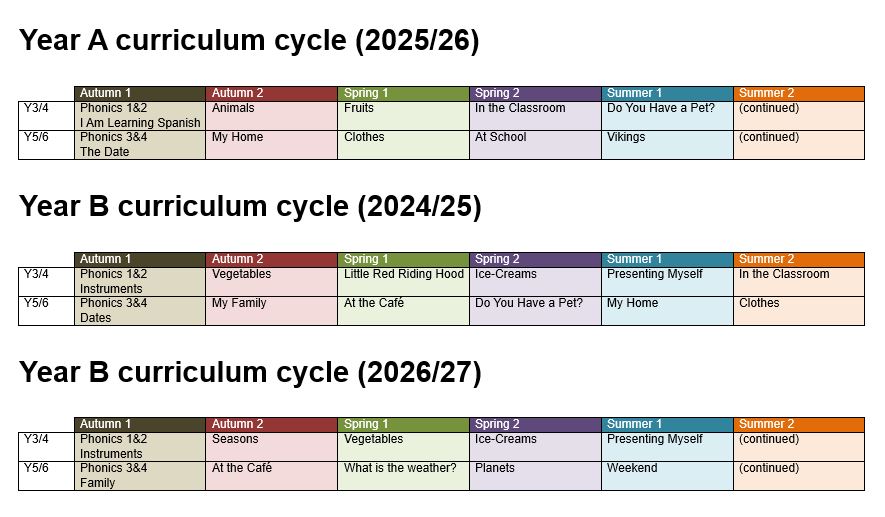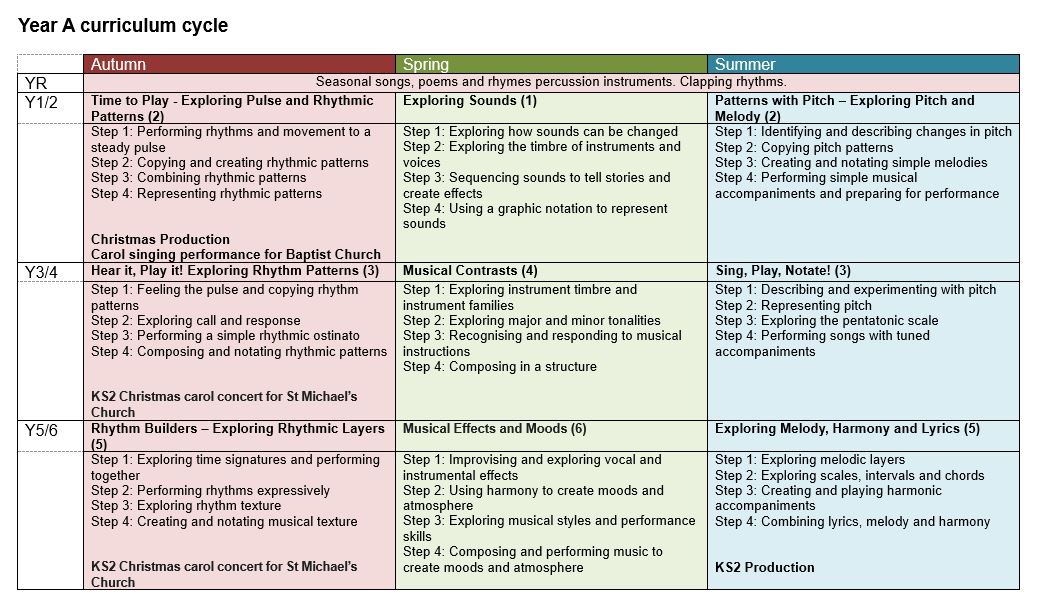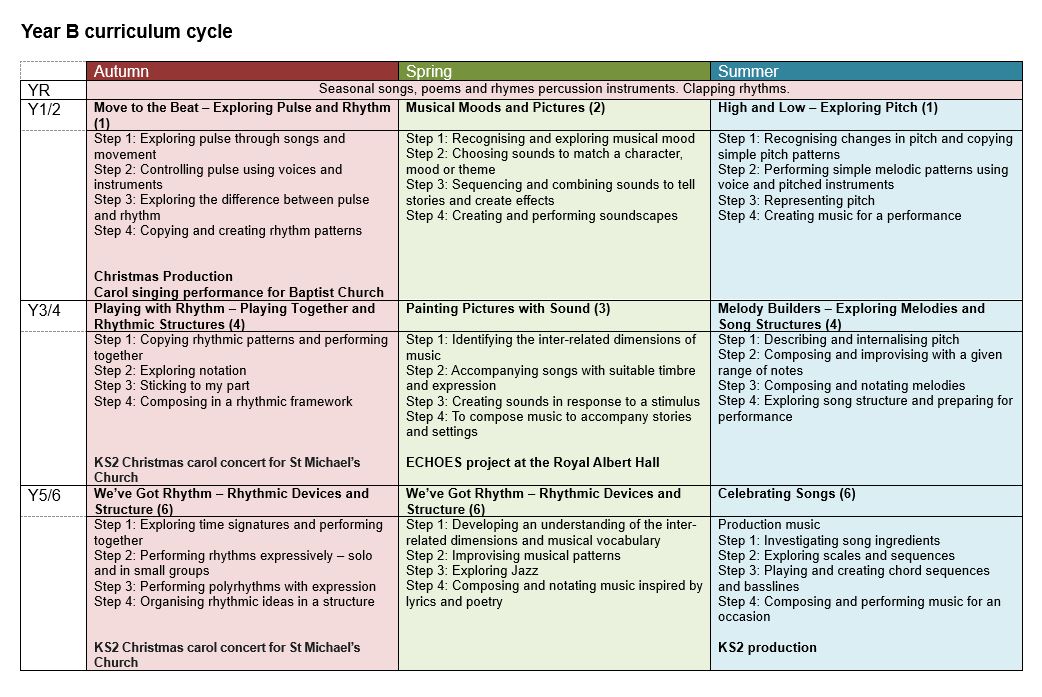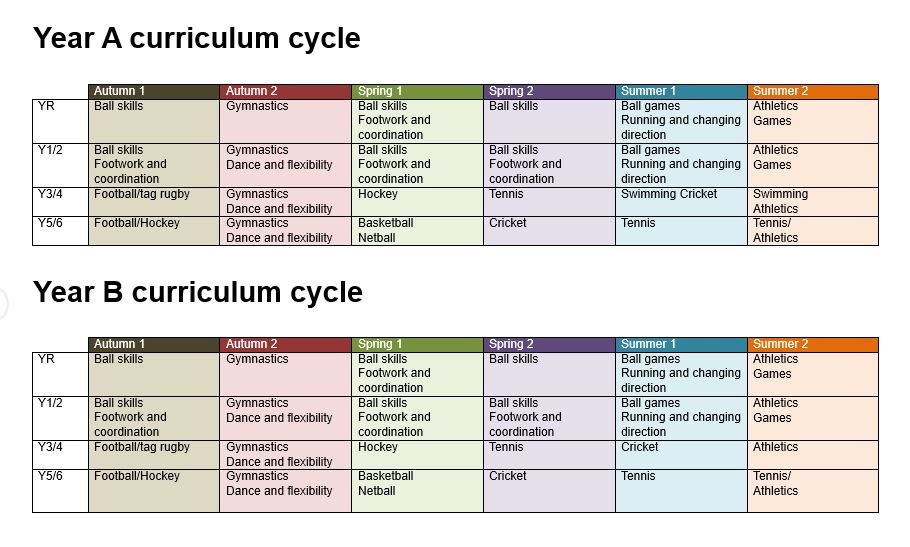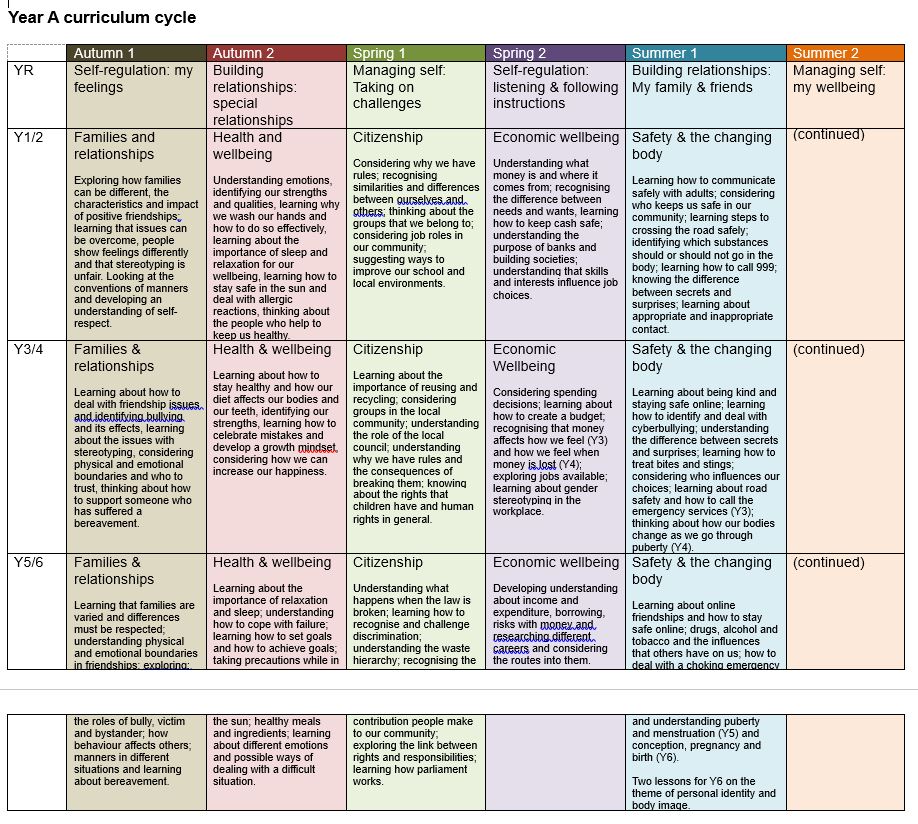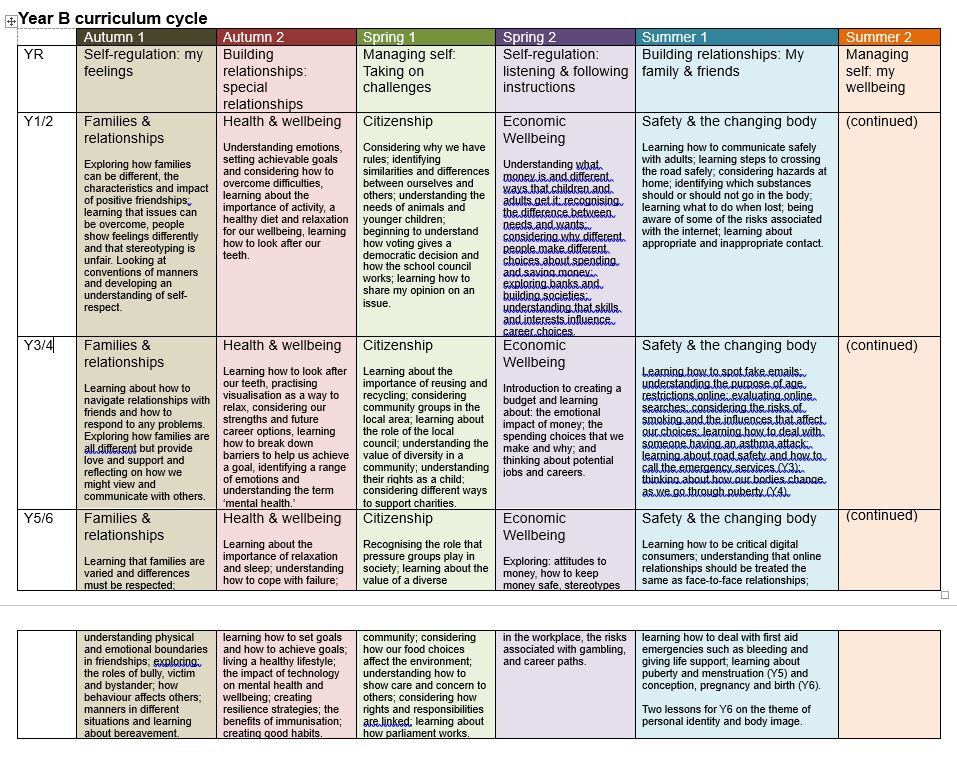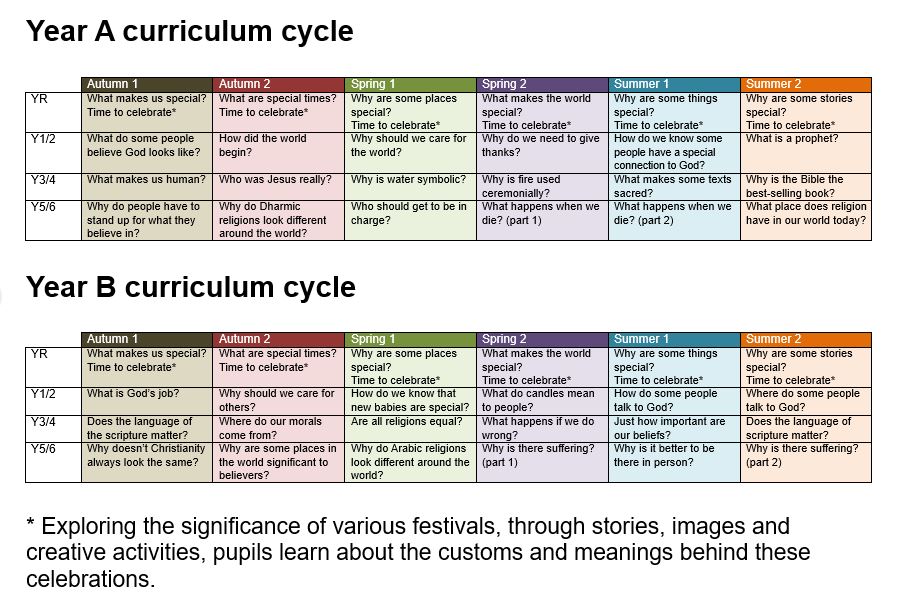Curriculum Subjects
Please note for the academic year 2025/26 we are currently in cycle A of our subject curriculums.
If you would like any further information about any of our curriculum subjects, please contact the school office who will be able to help. You can also visit: National curriculum in England: primary curriculum - GOV.UK or Early years foundation stage (EYFS) statutory framework - GOV.UK
English
Early Reading and Phonics
We aim to give children essential tools for building literacy skills that will help them become successful readers and writers. In EYFS and KS1 we use Lesley Clarke’s synthetic phonics to teach basic phonic skills. The children are assessed regularly and as a result, receive targeted support in phonics when necessary. The systematic teaching of phonics ensures children make rapid progress in the early stages allowing them to develop strategies to decode and build fluency. Reading books are linked to the phonic phase they are working within.
Reading
It is not enough to simply teach children to read; we have to give them something worth reading. Something that will stretch their imaginations—something that will help them make sense of their own lives and encourage them to reach out toward people whose lives are quite different from their own. — Katherine Paterson
Reading is integral to a child’s learning journey and has a high priority across the whole curriculum. Our intent is that all children read with fluency and understanding, equipping them to succeed at secondary school, read for pleasure and become readers for life. We strive to promote confidence in the children as readers and for them to become aware of reading as a source of communication, information, research, interest and pleasure.
Throughout the school, children are given the opportunity to read individually, share class novels, take part in whole class reading or small guided groups and are read to by adults regularly.
In KS2 we use Bug Club Comprehension resources and texts to support the development of children’s reading. Bug Club Comprehension focuses on developing the eight key strategies which support comprehension skills: - clarifying, summarising, activating prior knowledge, visualising, connecting, predicting, questioning and evaluating.
The coverage progression grids are available to view at school as the documents cannot be published on other websites.
Writing
We offer an inspirational and challenging English curriculum which provides all children with the skills necessary to equip them for life. It is our intent that all children feel confident to write for a range of purposes and that they can communicate their thoughts and ideas with ease and enjoyment. As part of our writing curriculum we use challenging and high-quality texts which makes learning meaningful. Children develop their speaking and listening skills such as drama, discussion, debate, and develop their understanding of texts and themes further by using these texts as springboards for purposeful writing. Elements of grammar and punctuation are mainly taught within the context of writing. Children learn the writing process from reading as writers, planning, drafting, editing and proof reading, knowing that writing is about crafting ideas using a range of skills.
Progression of skills
In order to ensure progression of knowledge and skills, we use the Literacy Tree scheme for English on a two year cycle. This is planned with mixed aged classes in mind and is adapted in content to our school. The progression grids are available to view at school as the documents cannot be published on other websites.
Maths
The maths overview will be uploaded soon. Please contact the school in the meantime
Science
To develop Scientific skills, all children need rich opportunities to communicate in play and in their daily lives as the first steps in developing emergent science skills. These will stimulate their senses as well as encourage them to question, explore and wonder at their environment. At Chenies School, emergent scientific study skills are taught through activities which provide pupils opportunities to respond consistently to familiar objects, explore materials in increasingly complex ways and observe the results of their own actions.
Pupils are taught the key active learning skills of observation, curiosity, a willingness to have a go, trial and error, problem solving, comparing, predicting and testing that are fundamental to developing an understanding of the world around them. Scientific thinking books are used to capture that curiosity, thinking and outcomes in a way that means they focus on their scientific understanding, not secretarial skills.
We follow the Kapow scheme of work for science which supports children's progression of knowledge and skills throughout the school. The progression documents can be seen at school as they cannot be published on other websites.
We capitalise on pupils’ areas of special interests, using these opportunities to extend learning in all areas of science so that each child can make progress from their individual starting point.
Computing
The National Curriculum identifies that children need a high-quality computing education equipping pupils to use computational thinking and creativity to understand and change the world. Computing has deep links with mathematics, science, and design and technology, and provides insights into both natural and artificial systems. The core of computing is computer science where pupils are taught the principles of computational thinking. They learn how to put this knowledge to use when writing simple computer programs or controlling robots through simple coding and programming exercises. They learn how digital systems such as the Internet, computer networks and email work where pupils are taught the principles of information and computation, how digital systems work, and how to put this knowledge to use through programming.
Building on this knowledge and understanding, pupils are equipped to use information technology to create programs, systems as well as access a range of content. Pupils are equipped to use information technology by working with various software programs; operating a variety of computer hardware types such as laptops and Android devices and accessing a range of digital content both off and online.
Computing also ensures that pupils become digitally literate – able to use, and express themselves and develop their ideas through, information and communication technology. Pupils are taught to become digitally literate. They learn day-to-day computer use such as logging in, password security and how to use the internet accurately and in a discerning manner. They will learn the principles of Digital Safety; how to communicate and collaborate safely when online and be good digital citizens.
In order to ensure progression of knowledge and skills, we follow the Kapow scheme for computing. This is planned with mixed aged classes in mind and is adapted in content to our school. The progression grids are available to view at school as the documents cannot be published on other websites.
Geography
The intention of our Geography curriculum is to ensure that children at Chenies School develop the necessary skills to equip them to make sense of a complex and dynamically changing world and thus, become global citizens. We aim to foster and harness a love of learning and a thirst for knowledge in Geography amongst our children. We want to inspire them to be inquisitive and to develop a desire to explore, not only their local area, but to develop a global awareness of the world around them and its people. We believe that Geography helps to provoke and provide answers to questions about the natural and human aspects of the world.
In order to ensure progression of knowledge and skills, we follow the Kapow scheme for Geography. This is planned with mixed aged classes in mind and is adapted in content to our school. The progression grids are available to view at school as the documents cannot be published on other websites.
History
Our History curriculum enables children to recognise that studying history is relevant and exciting. They consider how the past influences the present, what past societies were like, how these societies organised themselves, and what beliefs and cultures influenced people’s actions. The children learn about local, British, European and international history, and the historical order in which people lived and events happened. They are also taught how the past can be shown and explained in different ways. We aim to provide our children with memorable experiences and our History work is enhanced by educational visits to places of historical and geographical interest.
In order to ensure progression of knowledge and skills, we follow the Kapow scheme for history. This is planned with mixed aged classes in mind and is adapted in content to our school. The progression grids are available to view at school as the documents cannot be published on other websites.
Art & Design
In order to ensure progression of knowledge and skills, we follow the Kapow scheme for art. This is planned with mixed aged classes in mind and is adapted in content to our school. The progression grids are available to view at school as the documents cannot be published on other websites.
Throughout lessons, children develop their skills of drawing, painting and sculpture in a progressive manner as well as developing design techniques using colour, textiles, pattern, line, shape, form and space. All children also throughout the two year rolling programme study a range of significant artists.
Visits to art galleries will continue to enrich the experience for our children.
Design Technology
In order to ensure progression of knowledge and skills, we follow the Kapow scheme for design technology. This is planned with mixed aged classes in mind and is adapted in content to our school. The progression grids are available to view at school as the documents cannot be published on other websites.
Spanish
Learning another language develops children’s cultural awareness and understanding of the world around them. It extends their knowledge of how language works and helps them to develop communication skills. At Chenies School, in order to ensure progression of knowledge and skills, we follow the Kapow scheme for Spanish. This is planned with mixed aged classes in mind and is adapted in content to our school. The progression grids are available to view at school as the documents cannot be published on other websites.
Music
Teaching of Music at Chenies School inspires creativity, self-expression and encourages our children on their musical journeys, as well as giving them opportunities to connect with others. We hope to foster a lifelong love of music by exposing them to diverse musical experiences and igniting a passion for music. By listening and responding to different musical styles and composers, finding their voices as singers and performers and as composers, all will enable them to become confident, reflective musicians.
Please use the following link to view our latest School Music Development Plan
At Chenies School, all children have weekly Music lessons taught by qualified music teachers. Lessons always include an element of singing, based on our singing strategy, listening to music and an opportunity to play and perform using a range of instruments. All children will learn to play French Horn throughout their time at the school. All children have the opportunity to perform to parents and the community throughout the year with different performances, creating a clear purpose for their work.
In order to ensure progression of knowledge and skills, we follow the Sparkyard scheme for music. This is planned with mixed aged classes in mind and is adapted in content to our school. The progression grids are available to view at school as the documents cannot be published on other websites.
Physical Education
In PE we offer a varied and stimulating program of activity to ensure that all children progress physically through an inspirational, unique and fully inclusive PE curriculum. We encourage all children to develop their understanding of the way in which they can use their body, equipment and apparatus safely yet imaginatively to achieve their personal goals. All children have the opportunity to enjoy being physically active, maintain a healthy lifestyle and using the medium of sport, increase their self-esteem. We aspire for children to adopt a positive mind-set and believe that anything can be achieved with determination and resilience.
The Elms coach leads our PE with a carefully designed programme ensuring skills are built up year-on-year in a two-year rolling programme. These skills are then assessed over the year, focusing on a range of elements, from healthy me to specific skills for the range of different games played.
PSHE & RSE Curriculum
Religious Education
Parents and carers have the right to withdraw their child from all or part of religious education. If you wish to exercise this right, please contact the school to discuss your decision and any alternative arrangements that may be available.
Wellbeing
Whilst it is important to provide children with an excellent academic education, at Chenies School, we recognise that it is equally important that we equip children with the skills they need to use this education in the real world around them.
Personal Development is designed to help pupils gain the skills knowledge and understanding they need to lead, healthy, independent lives and to become informed, active and responsible citizens. It focuses on safety, well-being and enriching pupil’s educational experiences so that they are able to fully flourish. Children learn about the role they play as part of a local, national and international community and about the challenges and risks they may face outside the classroom and in turn prepares them so they know how best to deal with these.
Mental Health and Wellbeing
At Chenies School, we are committed to supporting the mental health and wellbeing of our pupils and staff. We aim to provide an environment underpinned by our vision and associated values, where everyone can flourish. We know that everyone experiences life challenges that can make us vulnerable and at times anyone may need additional emotional support. We take the view that positive mental health is everybody’s business and that we all have a role to play.
At our school we:
- Provide a nurturing, safe and supportive environment with clear expectations for behaviour
- Help children to understand and manage their emotions and feelings
- Help children feel comfortable sharing any concerns or worries
- Help children to form and maintain relationships
- Foster self-esteem and self-worth, and ensure children know that they count
- Encourage children to be confident and ‘dare to be different’
- Help children to develop emotional resilience and to manage setbacks
- Provide a structured approach to education about relationships, sex and health
- Support parents as partners in their child’s learning and development
Teaching about Mental Health
The skills, knowledge and understanding needed by our pupils to keep themselves and others physically and mentally healthy and safe are included as part of our developmental PSHE curriculum. The specific content of lessons will be determined by the specific needs of the cohort we’re teaching but there will always be an emphasis on enabling pupils to develop the skills, knowledge, understanding, language and confidence to seek help, as needed, for themselves or others.
Beyond the classroom
We enrich our curriculum by including visits, visitors and experiences in as many ways as possible.
Forest School is run by Wild Kites. It is run all year round with all year groups attending at different times throughout the year. The sessions helps the children grow in their knowledge and understanding of world and to use the outdoors to make sense of the world around them.
Each class have visits linked to their learning whether it is at the beginning of a topic to inspire and engage, in the middle of a unit to build on previous learning or at the end to consolidate and appreciate the learning that has taken place. Visits range from local studies such as Chenies Garden Centre, Chenies Manor, The Amersham Museum or the River Misborne or visits further afield such as; the Natural History Museum; The RAF Museum, Windsor Castle or the Science Museum in London where children have opportunities to learn and build specific knowledge linked to their units of work.
Visitors also come into school to enhance the opportunities available for children. Recently we have been visited by Laura Silverstone (Education & Engagement Officer, Chiltern National Landscape), Electric Umbrella, the New Mozart Orchestra and Iver Environment Centre and Rev Jon (Central Bapist Church, Chenies).
Children in the older classes also experience residential visits. In Year 5/6 we alternate yearly between Activities Week, where children get to experience in-house sessions such as circus skills and go kart driving and trips to London Zoo and Pizza Express. Our residential trips help children master the skills of sleeping away from home and working together as a team. We are currently using Woodrow High House to support this learning, but this is evaluated each visit and the best places to meet our needs is found.
The school maximises the use of the community and the Church, visiting throughout the year.
Transition to Secondary Schools is supported by visits from staff to talk to our Year 5/6 and County transition days.

